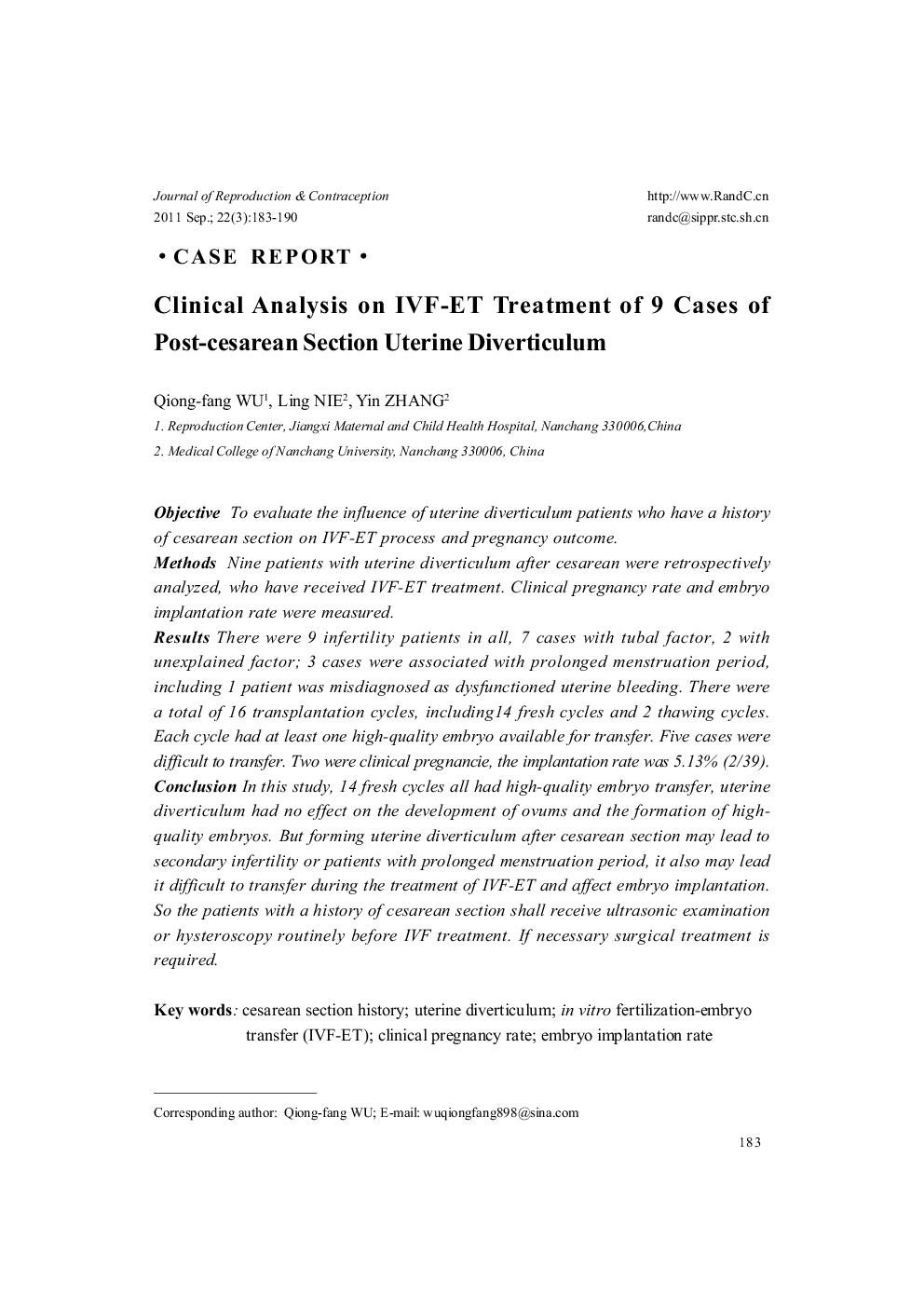| Article ID | Journal | Published Year | Pages | File Type |
|---|---|---|---|---|
| 3960917 | Journal of Reproduction and Contraception | 2011 | 8 Pages |
ObjectiveTo evaluate the influence of uterine diverticulum patients who have a history of cesarean section on IVF-ET process and pregnancy outcome.MethodsNine patients with uterine diverticulum after cesarean were retrospectively analyzed, who have received IVF-ET treatment. Clinical pregnancy rate and embryo implantation rate were measured.ResultsThere were 9 infertility patients in all, 7 cases with tubal factor, 2 with unexplained factor; 3 cases were associated with prolonged menstruation period, including 1 patient was misdiagnosed as dysfunctioned uterine bleeding. There were a total of 16 transplantation cycles, including14 fresh cycles and 2 thawing cycles. Each cycle had at least one high-quality embryo available for transfer. Five cases were difficult to transfer. Two were clinical pregnancie, the implantation rate was 5.13% (2/39).ConclusionIn this study, 14 fresh cycles all had high-quality embryo transfer, uterine diverticulum had no effect on the development of ovums and the formation of high-quality embryos. But forming uterine diverticulum after cesarean section may lead to secondary infertility or patients with prolonged menstruation period, it also may lead it difficult to transfer during the treatment of IVF-ET and affect embryo implantation. So the patients with a history of cesarean section shall receive ultrasonic examination or hysteroscopy routinely before IVF treatment. If necessary surgical treatment is required.
